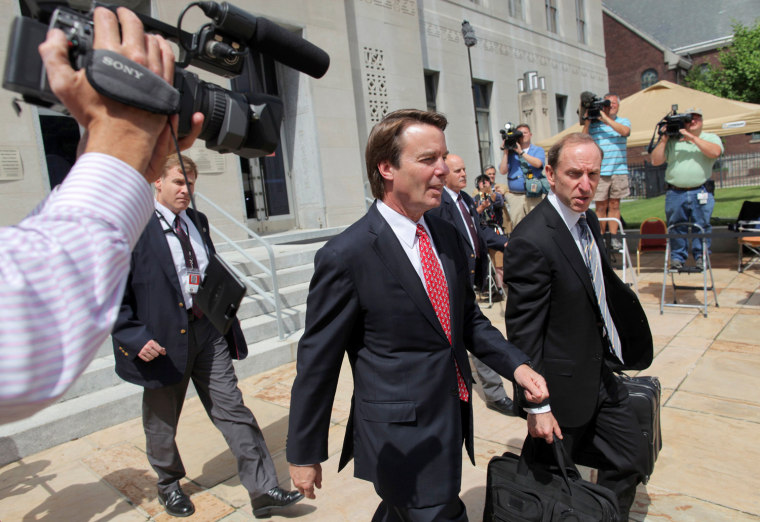The day after federal prosecutors in New York directly implicated Donald Trump in a felony, Rudy Giuliani turned to Twitter to argue why he thinks the U.S. Attorney's office is wrong.
"The President is not implicated in campaign finance violations because based on Edwards case and others the payments are not campaign contributions. No responsible prosecutor would premise a criminal case on a questionable interpretation of the law."
At issue here are two separate controversies. The first involves Donald Trump relying on his former personal attorney to arrange secret hush-money payments to two women who allegedly had extra-marital affairs with the president. The second involves former Sen. John Edwards (D-N.C.), who was indicted -- but never convicted -- for paying his former mistress to hide his extra-marital affair.
For Giuliani, the latter effectively negates the former. It was a popular argument yesterday, which was repeated yesterday on NBC's, ABC's, and CBS's Sunday shows.
The trouble is, the two stories aren't quite the same -- or at least aren't similar enough to help Trump.
Edwards had an affair in 2006 and then used a complex scheme to pay off his mistress in 2008, during his relatively brief and ill-fated presidential bid. The former senator was acquitted after his lawyers argued, among other things, that the money was intended to keep the affair secret from Edwards' family, unrelated to the election.
With Trump, the issue involves two alleged affairs from many years prior, which his attorney scrambled to deal with in the closing weeks of a presidential election. That attorney, Michael Cohen, has already pleaded guilty over his role in the illegal hush-money payoff.
It was a payoff, of course, that the president has already been caught lying about.
Complicating matters, it's not just the timeline between the two cases that's different. As Ron Klain noted over the weekend, Giuliani has also made incriminating comments about his client:
Giuliani made explicit what everyone suspected: The payment was to help Trump's election bid by preventing the story of the affair from being public. In an interview with Sean Hannity, Giuliani declared: "Imagine if it came out on October 15, 2016, in the middle of the last debate with Hillary Clinton. Cohen didn't even ask. Cohen made it go away. He did his job."
Exactly. In this case, Cohen's job was to make a problem "go away" before it prevented his boss from getting elected.
There are no comparable details involving John Edwards.
